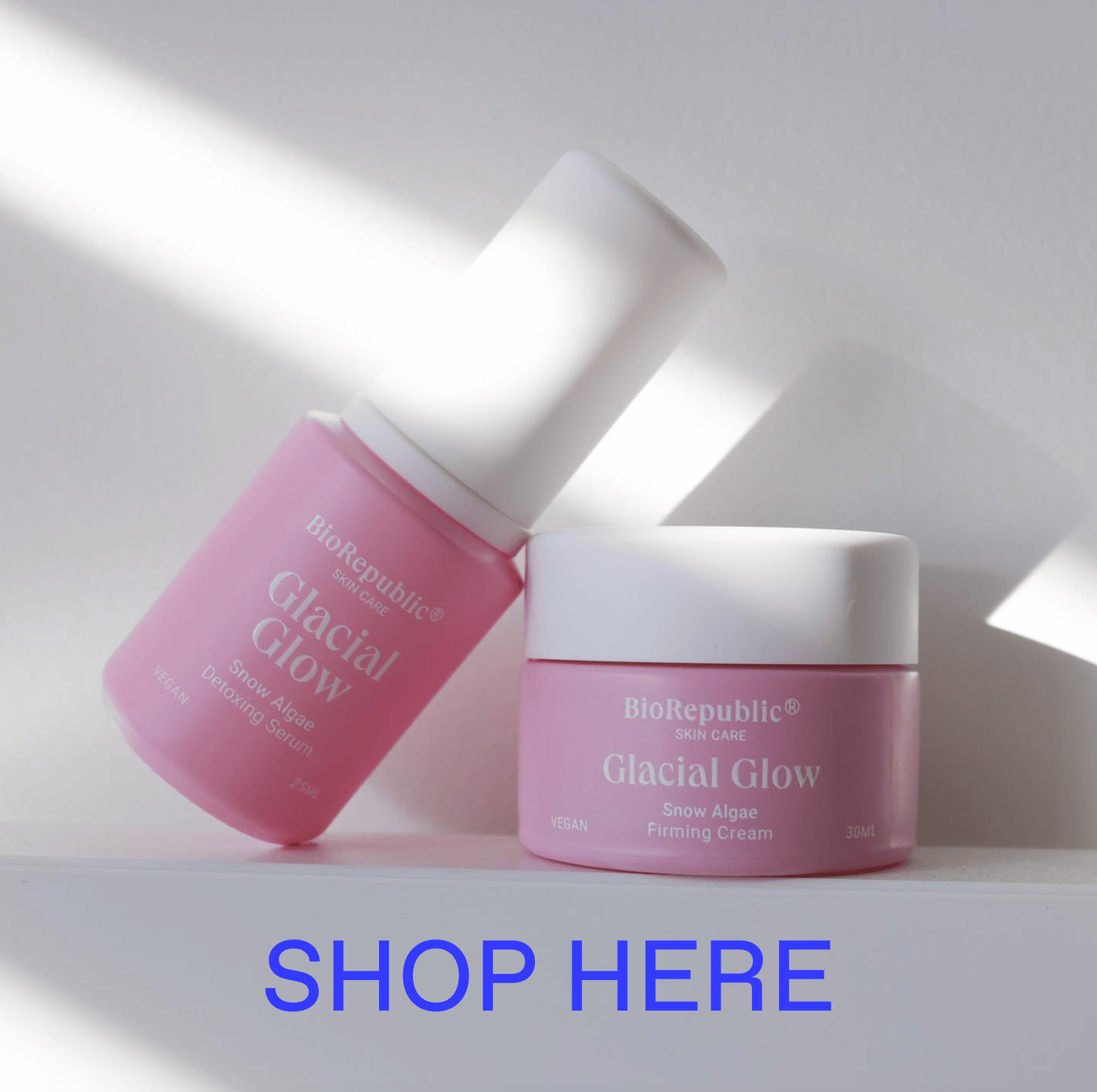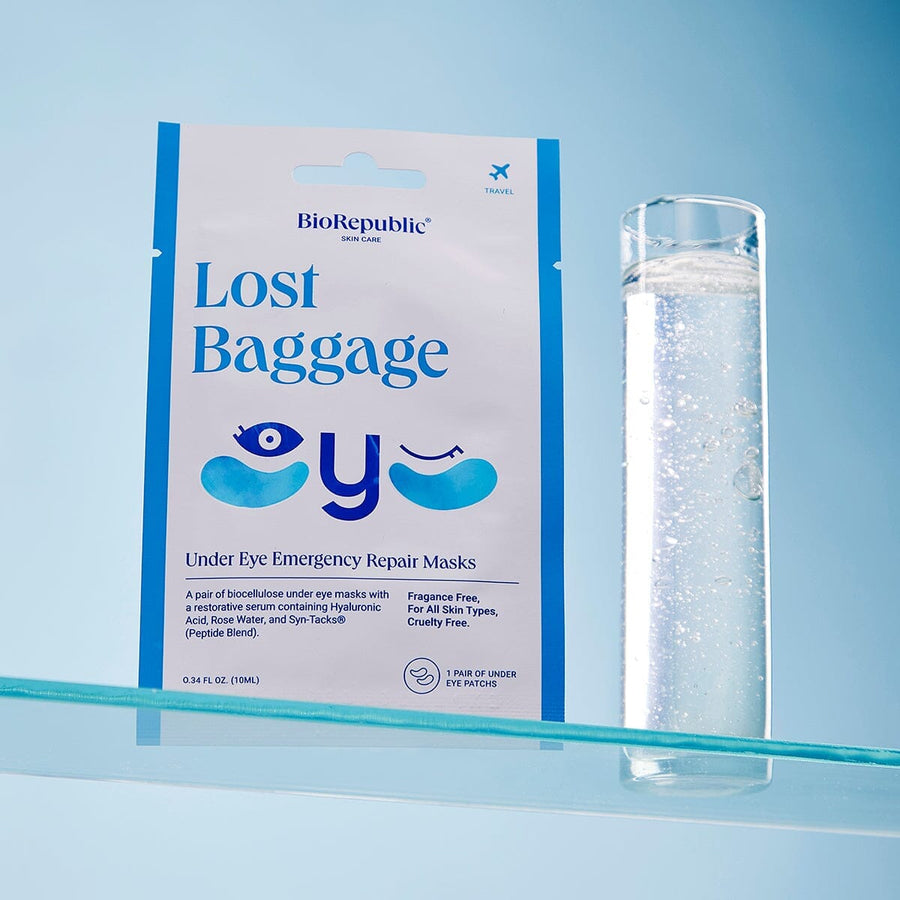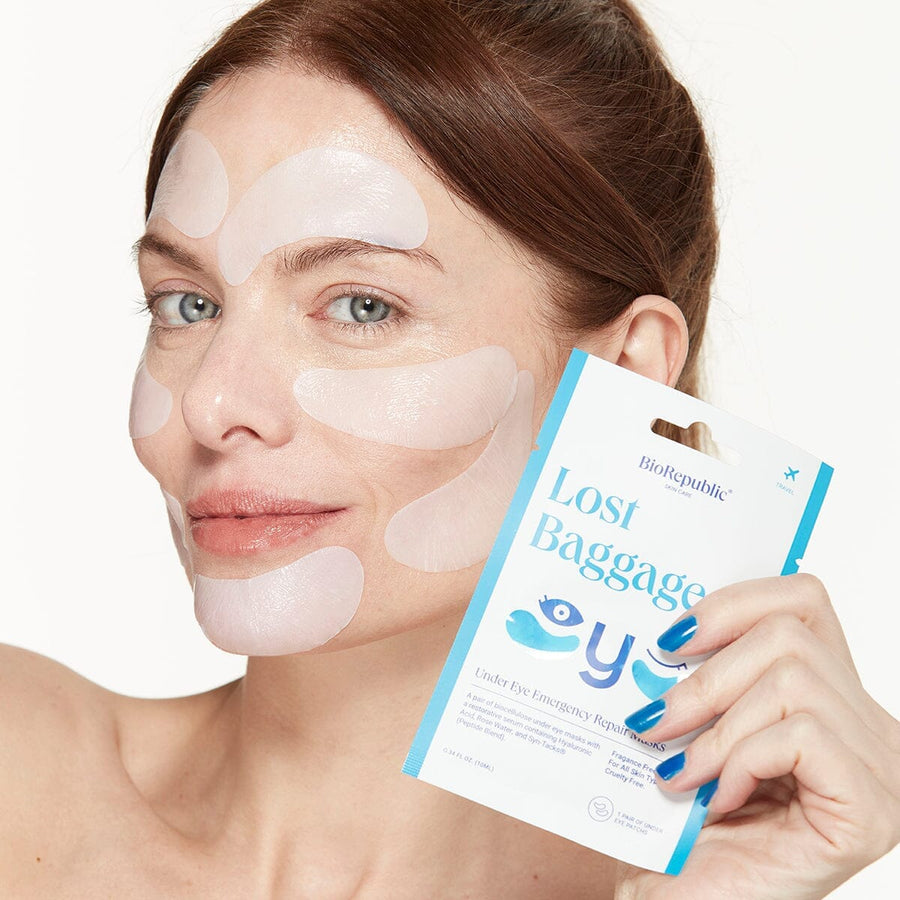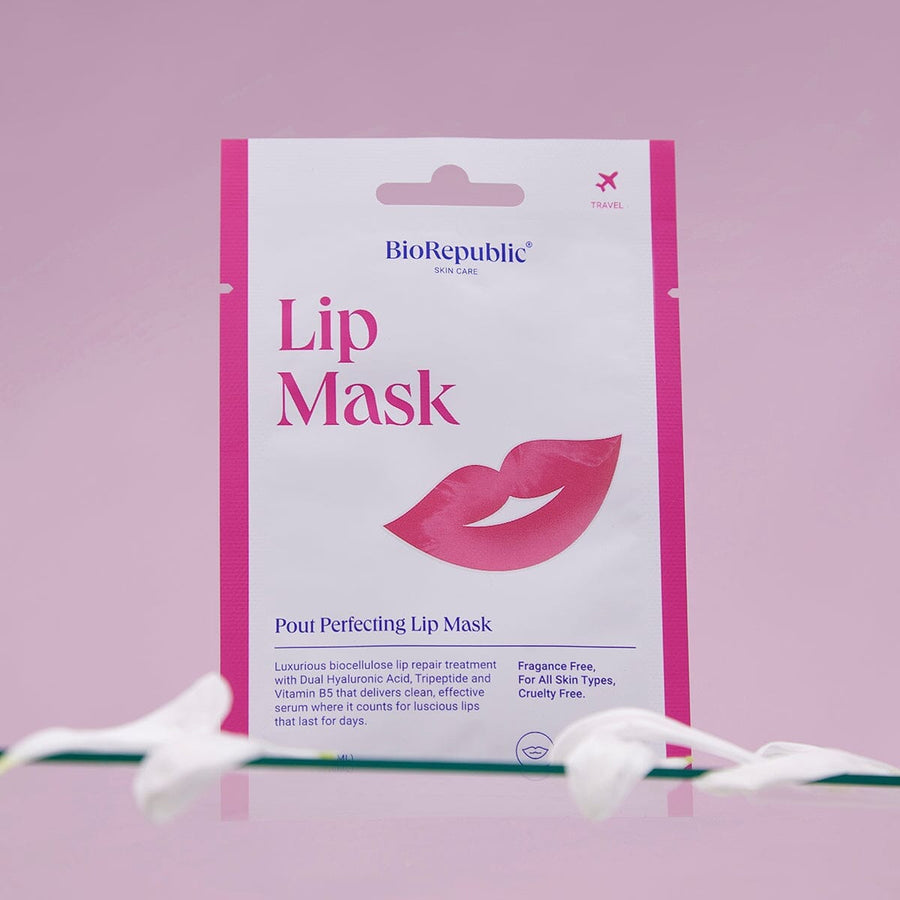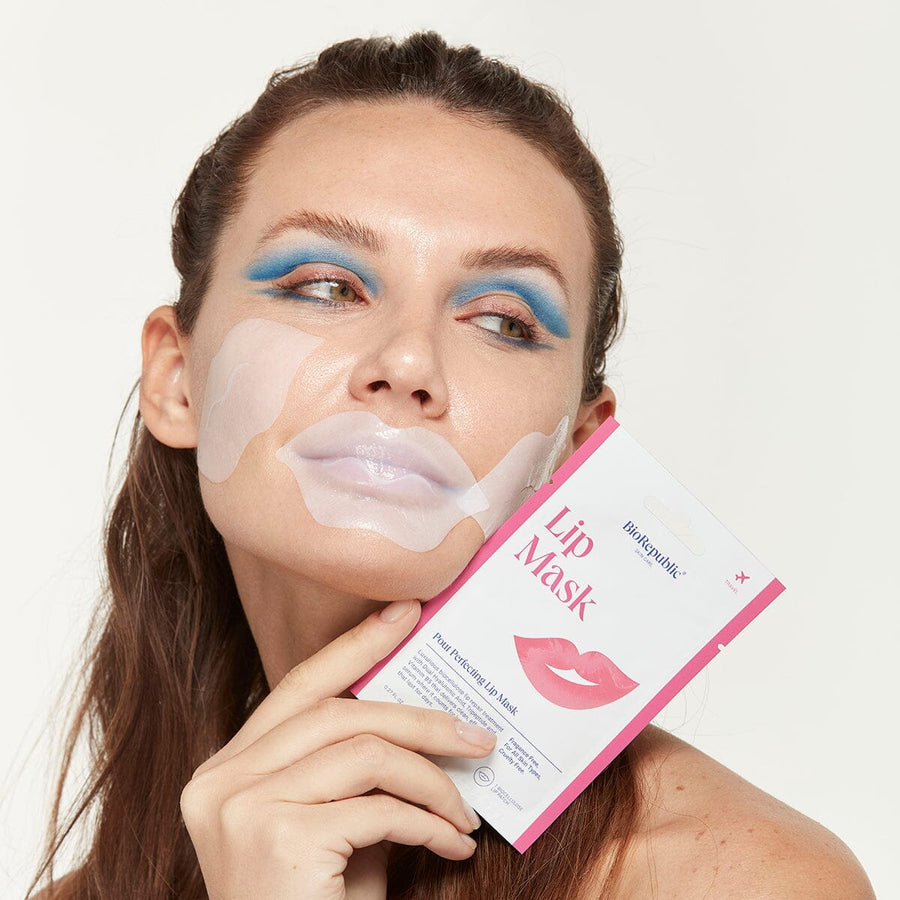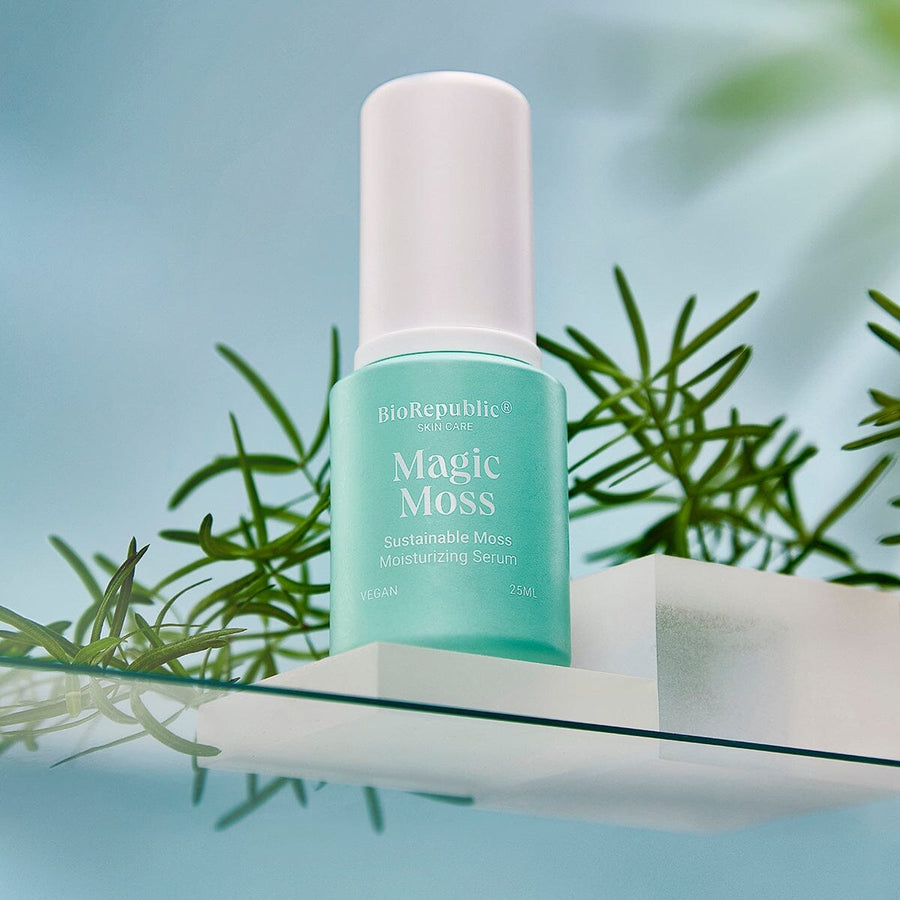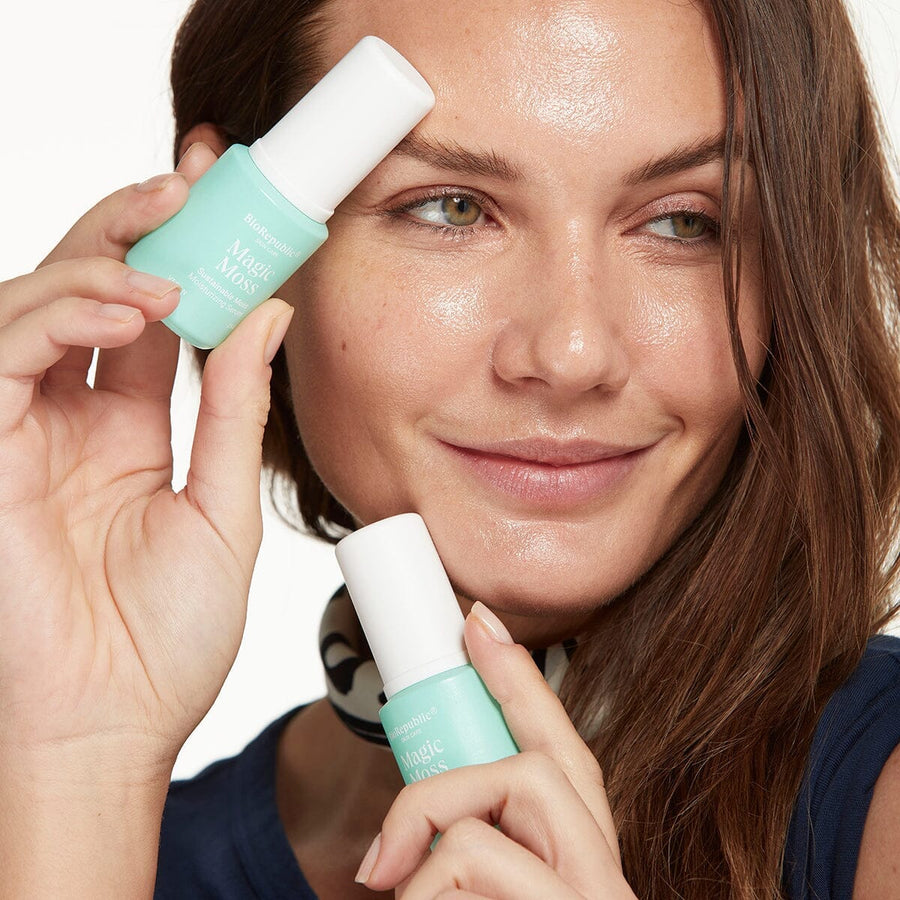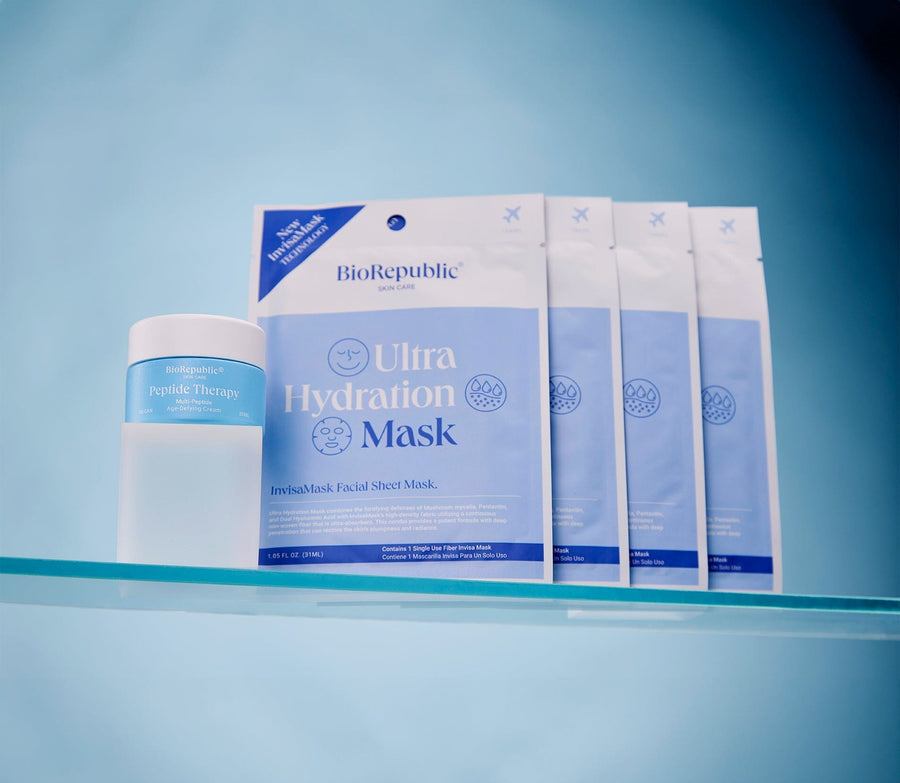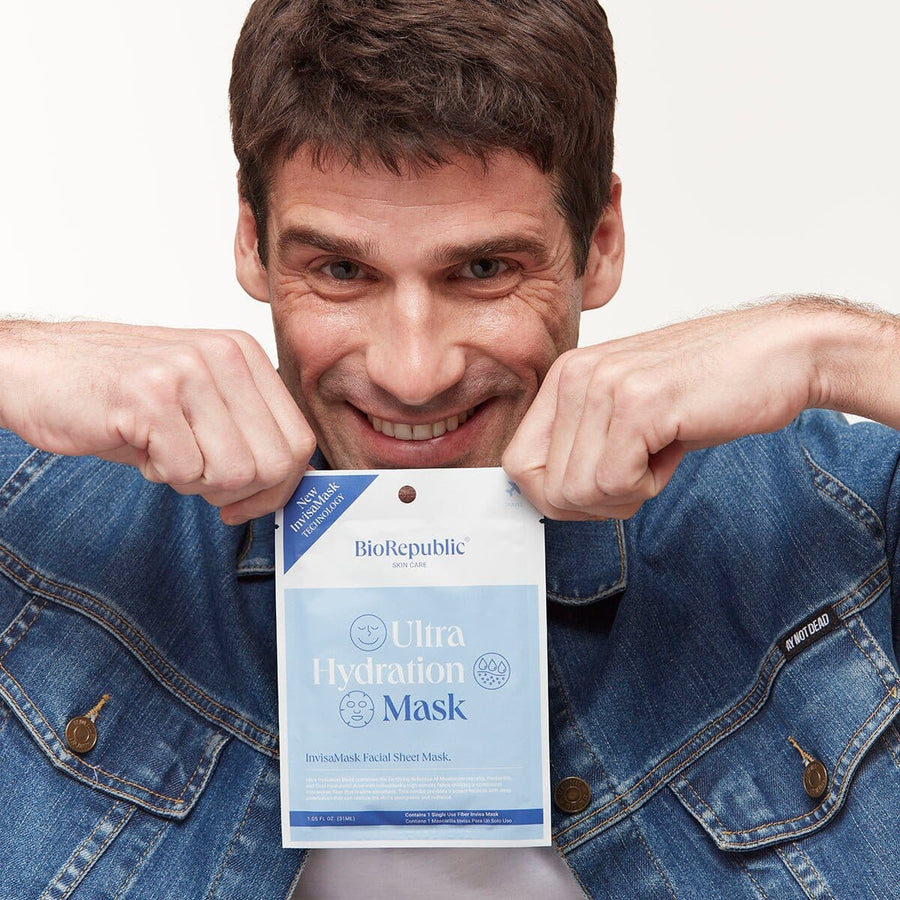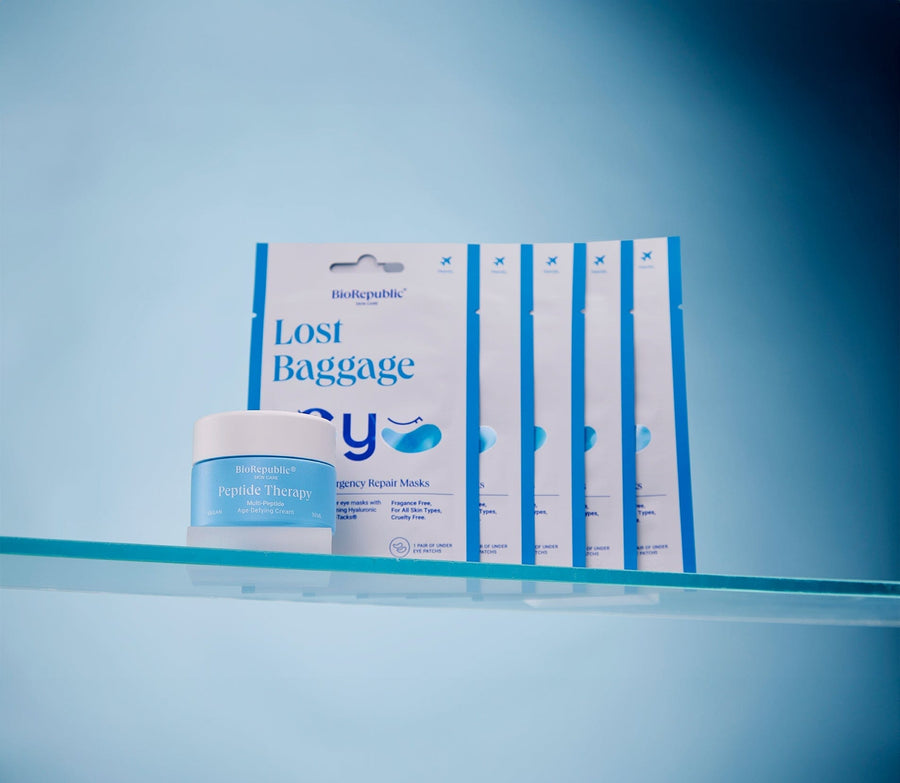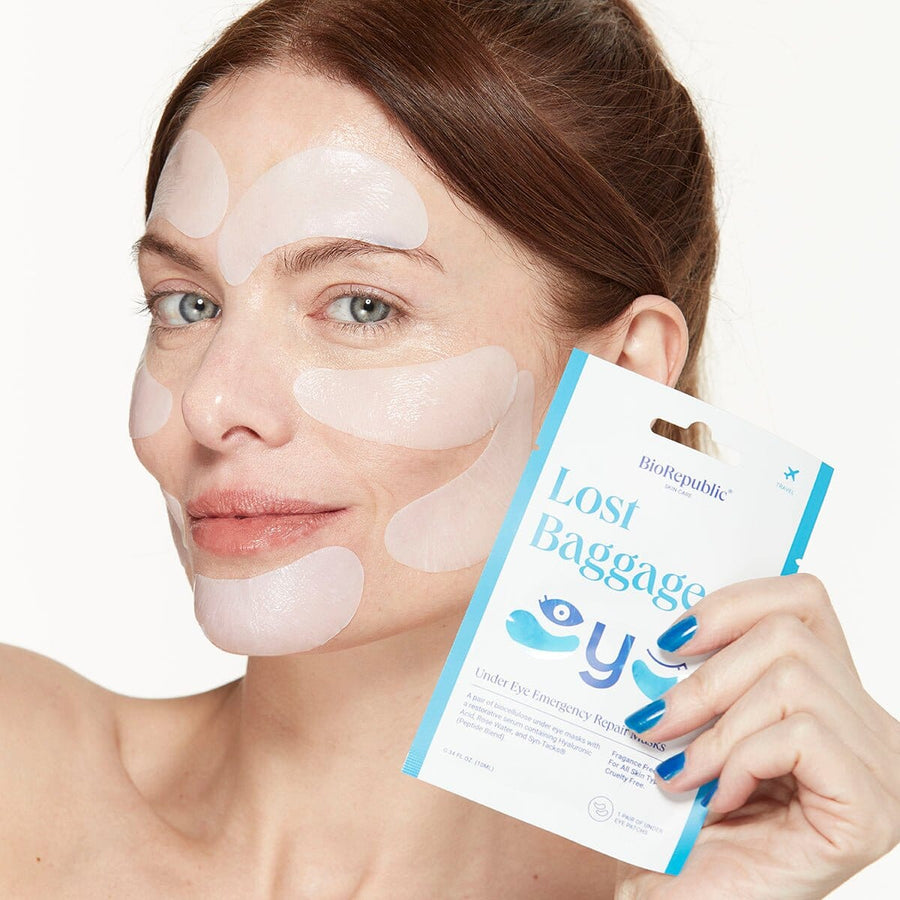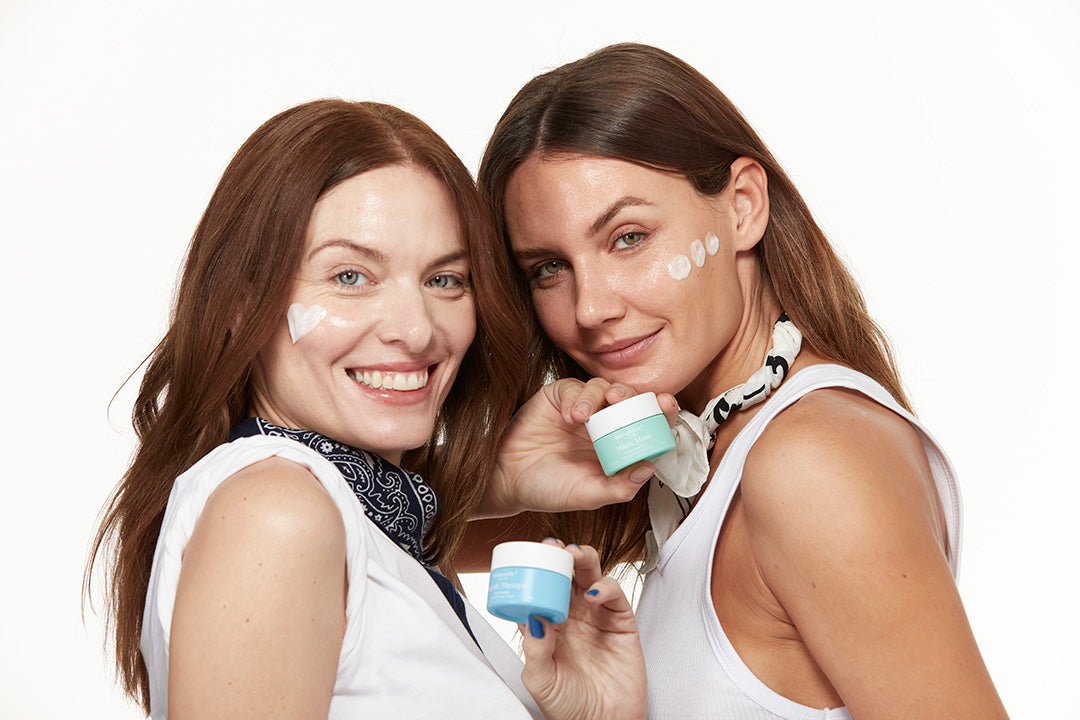This vs that. Serum vs cream. Our skincare routines always seem to involve debating between products, chasing after their intended benefits. And with every new skincare trend, it gets trickier and trickier to figure out what is hype and what genuinely works. Two ingredients that are often pitted against each other are hyaluronic acid and retinol. But what are these ingredients, how do they work, and which one is best for my skincare needs?
At BioRepublic, we understand how complex and important it is to maintain a personalized skincare routine that addresses your individual needs. We aim to deliver simplified, well-researched information to help you make educated decisions regarding your skincare specifically if retinol or hyaluronic acid is right for you.
The Different Functions of Retinol and Hyaluronic Acid
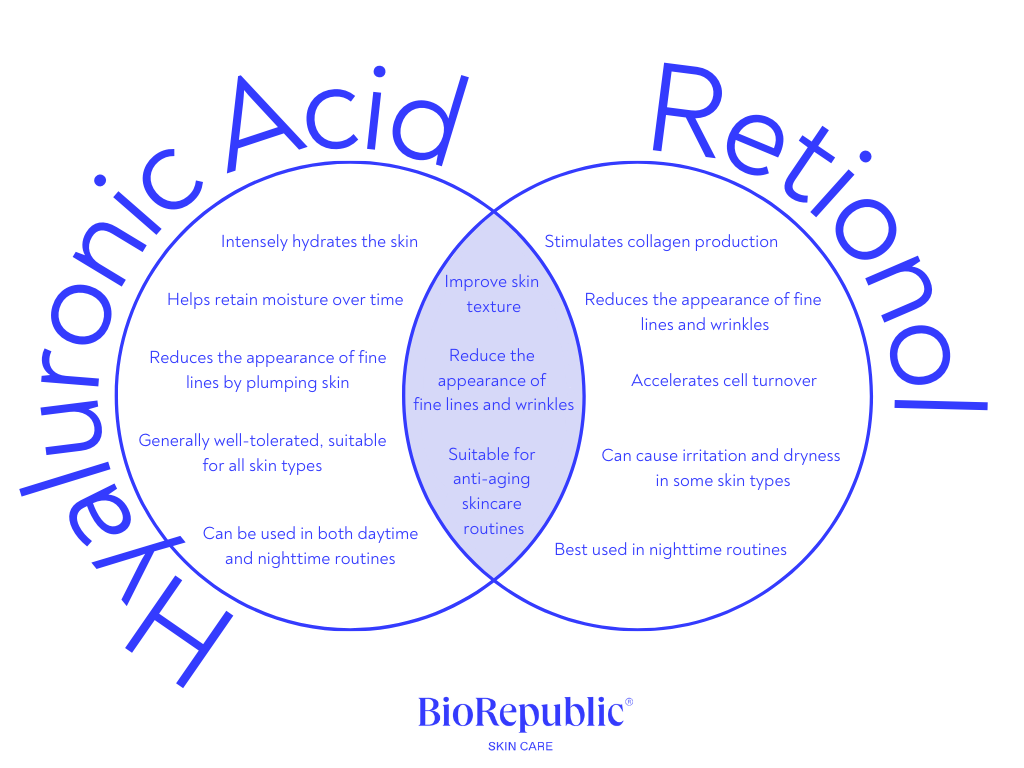
The most important thing to understand when comparing hyaluronic acid and retinol is that these are both very effective ingredients but serve different purposes. Choosing one depends mostly on your own unique skincare needs and challenges.
Retinol, a derivative of Vitamin A, is a game-changer when it comes to aging skin. It is often used as part of a skincare regimen for people in their mid-20s or early 30s when collagen—the protein responsible for maintaining skin's elasticity and firmness—begins to decline. It is a powerful antioxidant that stimulates cell turnover and boosts collagen production, making it a go-to skincare ingredient for those looking to reduce fine lines and wrinkles. Retinol can also be beneficial for acne-prone skin since it helps in reducing sebum production.
On the other hand, hyaluronic acid is a kind of sugar molecule naturally produced by our bodies that retains moisture in our skin. Functioning as a moisture magnet, it binds up to 1,000 times its weight in water, keeping skin plumped and hydrated. This allows for a visibly smoother skin texture and a more youthful appearance. The best thing about hyaluronic acid is that it is appropriate for all ages and all seasons. Regardless of whether you are trying to reduce the impression of fine lines, or just want to keep your skin plump, radiant, and well-hydrated, hyaluronic acid has your back!
Retinol Revolution: Transforming Skincare One Layer at a Time
Understanding the distinct roles of retinol and hyaluronic acids is important, but these ingredients have so much more to take into consideration. We'll start by exploring retinol.
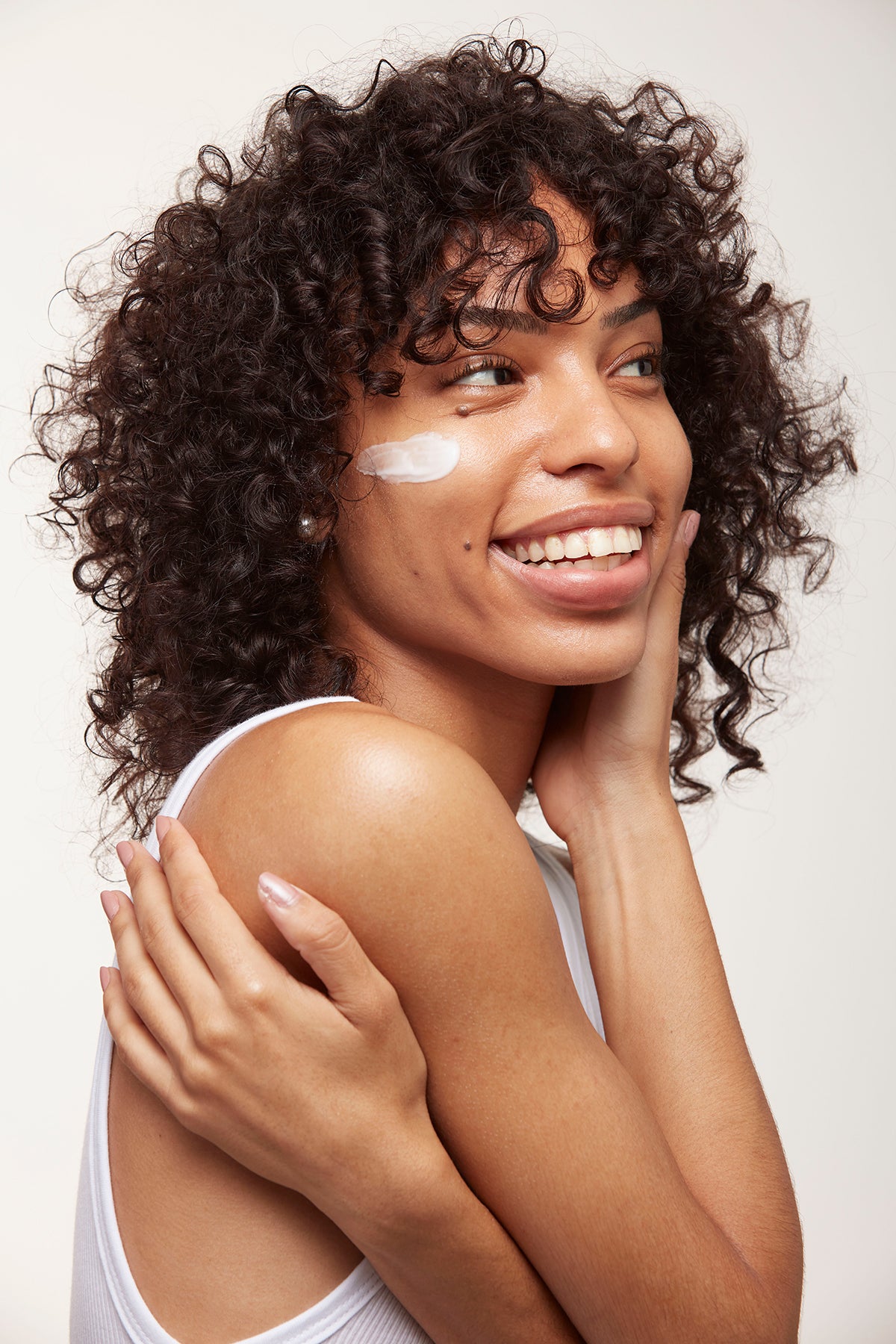
Like we said, retinol is a derivative of Vitamin A, which is key for cell growth, making retinol an effective ingredient in many anti-aging skincare products. The magic of retinol lies primarily in its ability to stimulate the production of new skin cells. In other words, it speeds up your skin's natural process of shedding dead skin cells and creating fresh ones. This active ingredient often proves crucial in fighting unavoidable signs of aging such as fine lines, uneven skin tone, and dark spots.
In addition to its anti-aging benefits, retinol is an effective acne treatment. It works by reducing the production of sebum, an oily substance that can lead to clogged pores and acne. This makes retinol a versatile skincare ingredient suitable for a range of skin types and concerns.
However, as powerful as retinol may be, it does come with some potential side effects. Users initially incorporating retinol in their skincare routine may experience skin irritation, dryness, redness, and sensitivity, often referred to as "retinol burn". It’s important to remember, if you’re planning on incorporating a retinol product into your skincare routine, this is a marathon, not a sprint. Your skin needs time to adjust to the powerful ingredients, so it’s best to start slowly and always follow up with a good SPF since retinol can make your skin more sensitive to UV rays.
Retinol can be integrated into your routine in several effective forms, each tailored to different needs and preferences. One popular way is through a retinol serum, which offers a lightweight, highly concentrated formula designed to penetrate deeply into the skin, providing targeted action against signs of aging and improving skin texture. For those seeking a more general approach, topical retinoids like creams and lotions, offer a broader application, delivering retinol's benefits across the skin's surface while also incorporating moisturizing ingredients to mitigate potential dryness or irritation.
Over-the-counter retinol products allow consumers easy access to its skin-renewing benefits without the need for a prescription, making it a convenient option for those looking to incorporate these powerhouse ingredients into their skincare regimen. On the other hand, prescription-strength retinoids, which contain a higher concentration of the active ingredient, offer more powerful results for addressing severe acne and deep wrinkles but require guidance from a board-certified dermatologist to manage potential side effects.
Remember that the best skincare routine is the one you can maintain. So try new ingredients, but also be patient. Allow your skincare journey to be a process of discovery to find out what potent combination of products works best for your skin. Lastly, remember not all retinols are formulated the same way, so when selecting your skincare product, opt for trusted brands that believe in formulating with simplicity and mindfulness, to ensure you are getting the best quality ingredients for your skin.
Hydration Hero: Hyaluronic Acid
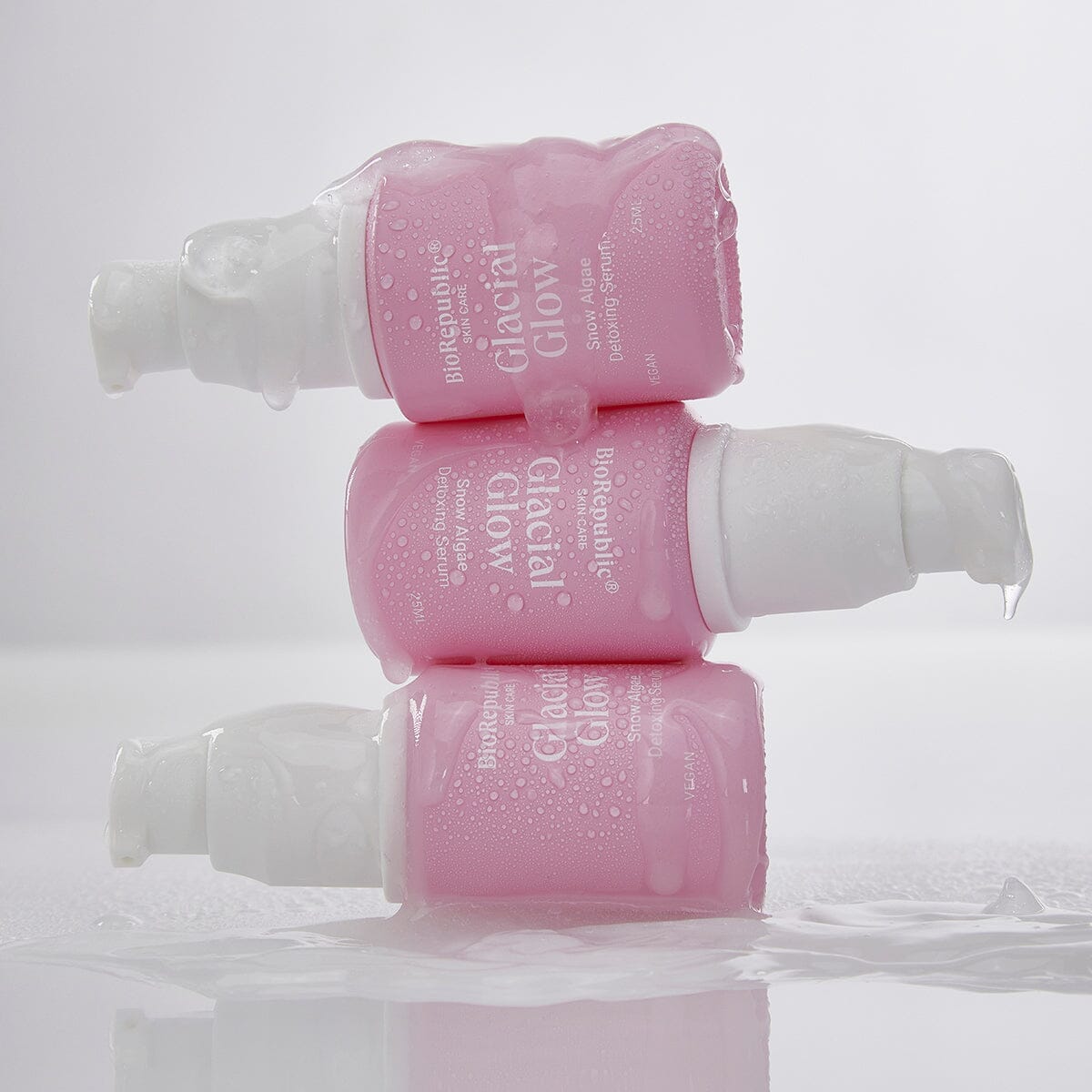
Let’s now move our focus to the hydration hero of skincare – hyaluronic acid. Like we mentioned, this skincare ingredient is a type of sugar molecule naturally produced by our bodies. Its primary role is attracting and retaining moisture, making it a star player in maintaining skin hydration.
Hyaluronic acid is a popular skincare ingredient because of its extraordinary capability as a humectant - a substance that retains and preserves moisture. It can hold up to 1,000 times its weight in water, making it incredibly effective in providing deep, long-lasting hydration, especially for those experiencing dry skin.
A pro of hyaluronic acid is that it is gentle and suitable for all skin types, even sensitive skin. As is the case with retinol, hyaluronic acid can also work well for those experiencing acne. Its moisture-retaining properties can provide the necessary hydration to balance the oiliness often related to acne-prone skin. Additionally, hyaluronic acid is safe for pregnant and breastfeeding mothers, offering a skincare solution where retinol is unsafe.
As the focus on clean beauty continues to grow, it's ultra important for consumers to look for products that hold the balance between being effective and kind to the skin and the environment. BioRepublic is committed to clean and mindful beauty, offering numerous innovative products featuring hyaluronic acid, an excellent option for those looking for the rejuvenating benefits of skincare without the potential for retinol irritation.
Our best-selling Super Collagen & Detox Glacial Algae Serum and Cream provides a transformative skincare experience beyond the boundaries of retinol. The serum harnesses the power of squalane, incorporates cultural Korean ingredients like glacial algae, and features double-molecule hyaluronic acid for an energetic and deeply rejuvenating skin journey. So, whether your skin concerns are related to hydration, aging, or even acne, hyaluronic acid products from BioRepublic can be the ideal addition to your skincare routine.
The Best of Both Worlds: Using Both Retinol and Hyaluronic Acid Together
Retinol sounds pretty good, and so does hyaluronic acid, so why can't I have it all? The good news is— you absolutely can!
While retinol works its charm by stimulating cell turnover and collagen production, hyaluronic acid props up these new cells with essential hydration. This means that as retinol works to resurface your skin and reveal fresh, new cells, hyaluronic acid can swiftly swoop in to provide these cells with the hydration they need. The result is skin that is not only refreshed and renewed but also profoundly hydrated.
The best way to integrate both these ingredients into your skincare routine would be to apply a hyaluronic acid serum in the morning after cleansing and toning. This can provide your skin with a quick hydration boost that stays locked in throughout the day. After your usual cleansing routine, you can reach for your retinol product at night. After it is fully absorbed, you may reapply your hyaluronic acid serum for an extra dose of hydration, especially important as retinol can initially cause some dryness.
Choosing Between Hyaluronic Acid and Retinol: Finding Your Skincare Harmony with BioRepublic
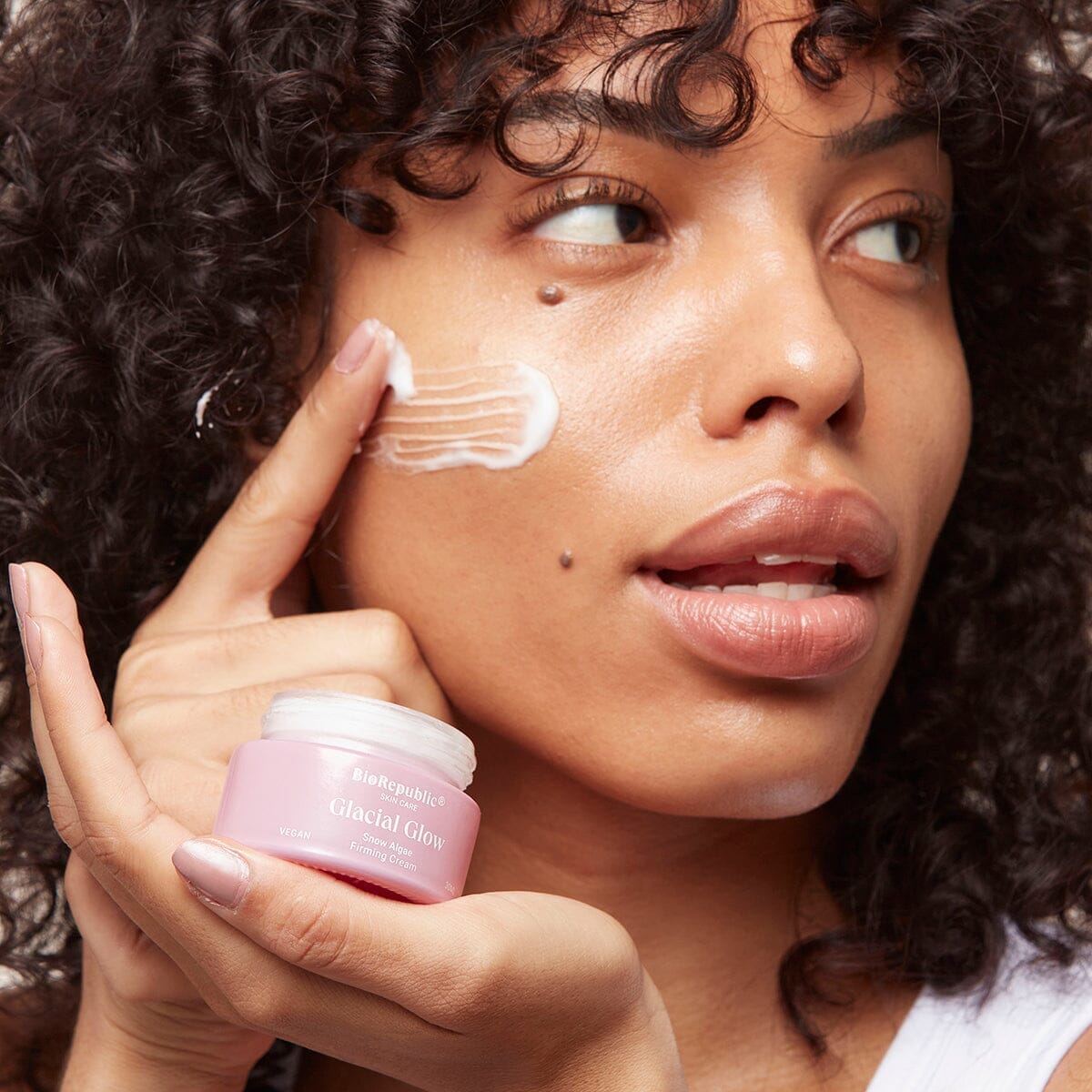
When deciding between hyaluronic acid and retinol, remember that each ingredient has its unique strengths and advantages. With BioRepublic's carefully curated and consciously created products, you can effectively integrate both into your skincare routine, reaping the anti-aging benefits of retinol and the hydrating superpowers of hyaluronic acid.
Our line of hyaluronic acid-based products, including our Super Collagen & Detox Glacial Algae Serum and Cream, takes you a step closer to a regimen that marries hydration with rejuvenation, ensuring your skin's needs are met with the highest quality ingredients and formulations. Use either in combination with retinol for a rounded-out routine or if retinol does not work for you. And remember, the best skincare routine is one that caters to your individual needs and keeps your skin feeling its absolute best.

